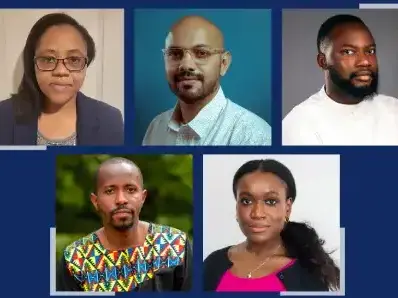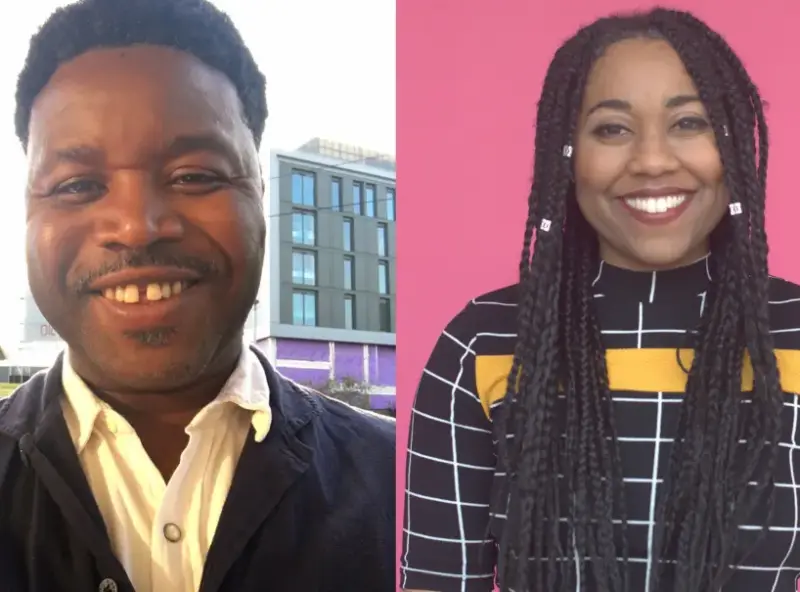
Update: 6 September 2024: The Guardian has appointed a Manchester-based community affairs correspondent, a role first announced in July 2023.
Chris Osuh is currently features editor at the Manchester Evening News and will move to The Guardian in October.
He will cover Greater Manchester’s black communities alongside wider reporting of Britain’s black, Asian and ethnic-minority populations and issues affecting them.
Guardian editor-in-chief Katharine Viner said: “The Guardian puts readers and their communities at the heart of so much of its journalism and was founded in Manchester, so it is particularly fitting we have someone based in the city to cover the urgent stories and issues that affect us today.”
In addition Keisha Thompson has been appointed as the Manchester-based programme manager for the Scott Trust Legacies of Enslavement project, which revealed links between the founders of the Manchester Guardian and transatlantic slavery.
Thompson will lead on community engagement and partnerships in Greater Manchester to advance understanding of the city’s connections to transatlantic slavery, the newsbrand said.

Original story 28 March 2024: The Guardian has appointed five new correspondents in the Caribbean, South America, Africa and UK with the aim of boosting coverage of underreported communities.
The new roles are part of Guardian owner Scott Trust’s programme of restorative justice addressing the newspaper’s historical connections with transatlantic slavery, first revealed in July 2023.
Natricia Duncan, who has written for national media in her native St Vincent and the Grenadines and for The Guardian in the UK on immigration and race equality issues, has been named the title’s first Caribbean correspondent, based in Jamaica.
She said: “Coming from a small island in the Caribbean, I understand the importance of giving voice to those who feel marginalised and invisible.
“Despite its rich cultural tapestry, dynamic leaders and complex environmental and socio-economic challenges, the region is often misunderstood, misrepresented, or ignored by global media.”
Tiago Rogero joins as South America correspondent based in Brazil, where he created the award-winning narrative podcast Projeto Querino.
Eromo Egbejule has been named West Africa correspondent based in Ivory Coast, after a stint as Africa editor at Al Jazeera English while Carlos Mureithi is joining as East Africa correspondent based in Kenya joining from his role as Africa climate and environment correspondent for the Associated Press.
Guardian readers around the world will get “more dedicated news, expert analysis and original features” from each of these regions as a result, the newsbrand said.
Guardian editor-in-chief Katharine Viner said: “Our new Caribbean, South America and Africa correspondents will cover the urgent stories and issues affecting communities in these regions today, and with a depth and breadth rarely seen in the western media.”
Finally Tobi Thomas is already in post as The Guardian’s UK health and inequalities correspondent after previously working for the title as a news reporter and data journalist.
The five recent appointments follow the recruitment of two journalists to The Guardian’s race and equity team in the US at the end of last year.
The Guardian is also still recruiting for a Manchester-based community affairs correspondent to expand its reporting of race in and around the North West.
A report published last year by the Scott Trust found links between the paper’s founder and slavery. The report shared an apology and proposals for reparation.
The Guardian Foundation has since expanded its training scheme in the UK to include three extra bursaries for aspiring black journalists.
Guardian Australia has launched its first trainee programme aimed at diversifying the newsroom while Guardian US is currently developing a similar scheme.
The Guardian’s journalism series Cotton Capital, which examines how transatlantic slavery shaped The Guardian, Manchester and beyond, will also publish new stories in the coming weeks.
Cotton Capital was highly commended at the British Journalism Awards in December. The judges said: “Few publications would be brave enough to subject themselves to such scrutiny.”
Email pged@pressgazette.co.uk to point out mistakes, provide story tips or send in a letter for publication on our "Letters Page" blog
